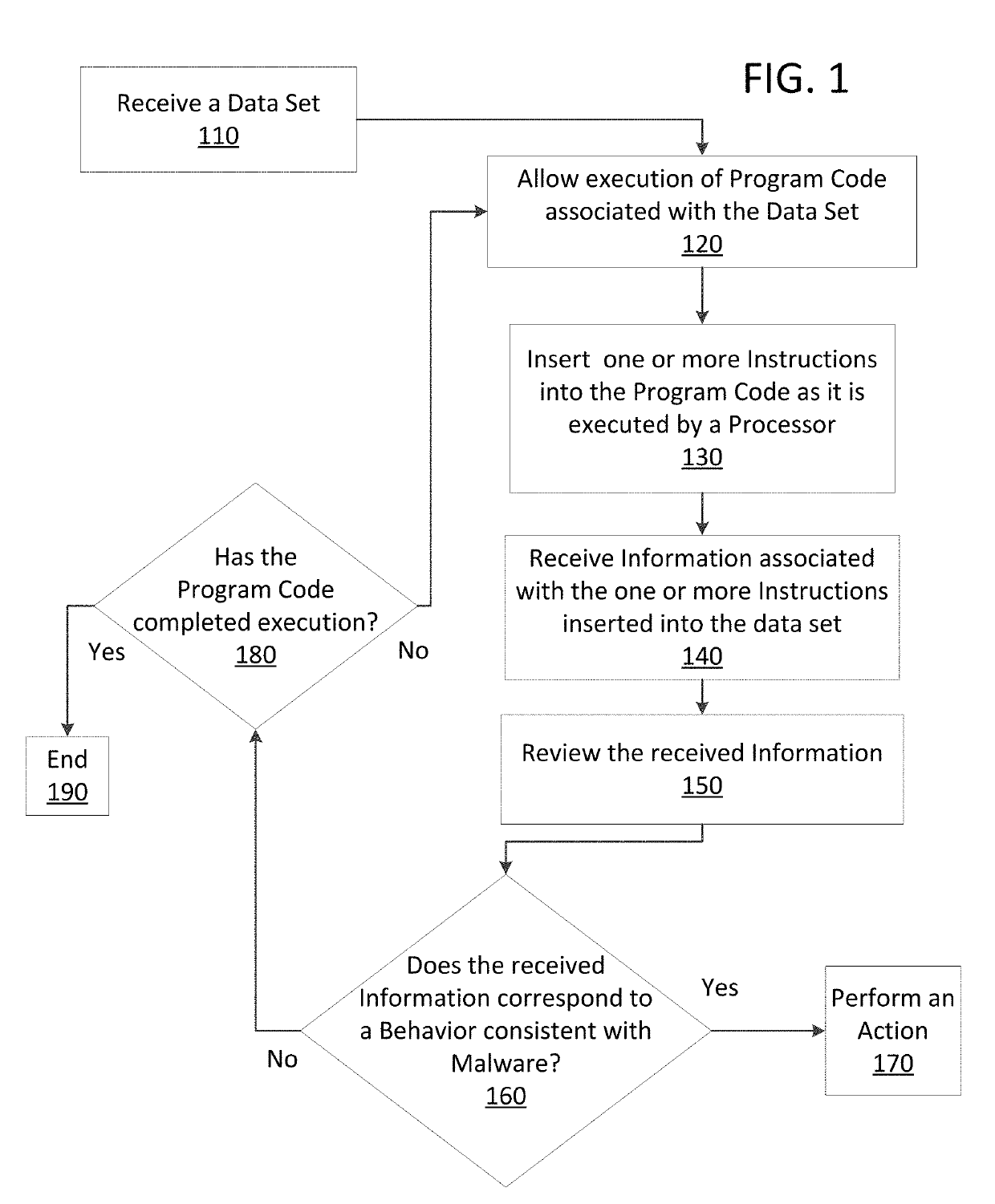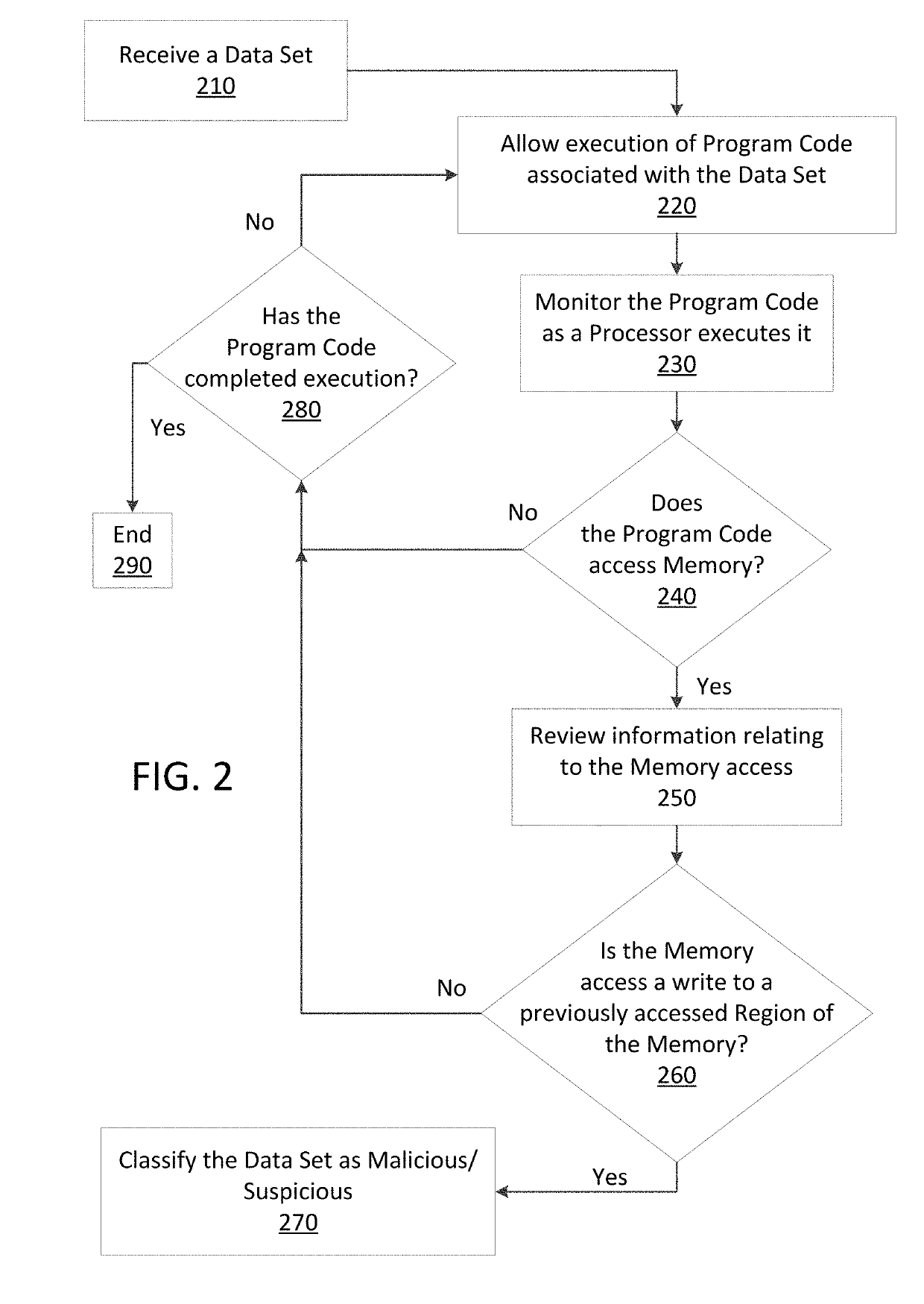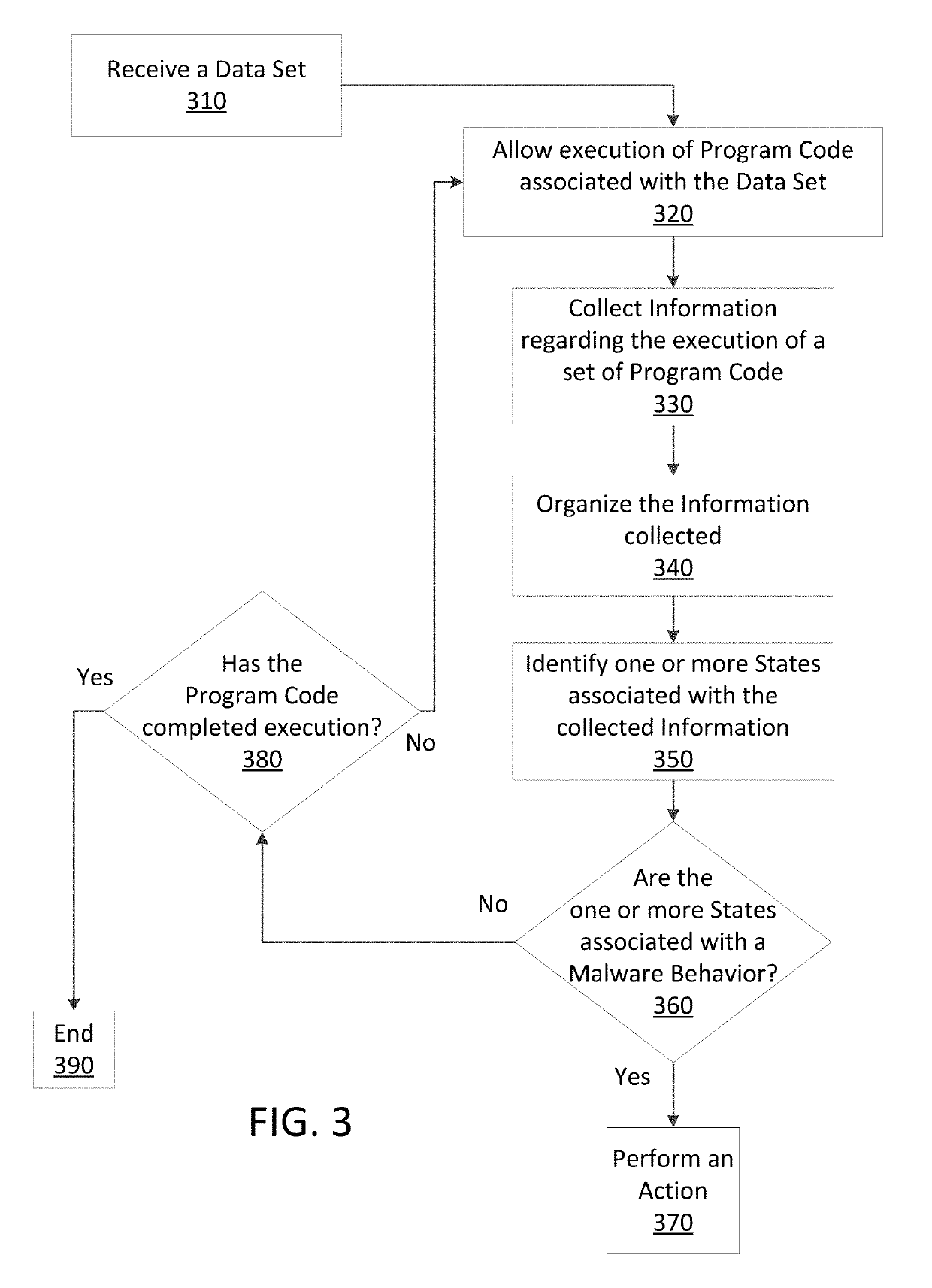Just in time memory analysis for malware detection
a malware detection and memory analysis technology, applied in the field of just in time memory analysis for malware detection, can solve the problems of increasing the difficulty of identifying newly developed malware, the smallest threat to privacy and the security of computer data, and the use of malware to damage a computer or to damage computer data
- Summary
- Abstract
- Description
- Claims
- Application Information
AI Technical Summary
Benefits of technology
Problems solved by technology
Method used
Image
Examples
Embodiment Construction
[0020]The present disclosure is directed to monitoring internal process memory of a computer at a time with program code executes. Methods and apparatus consistent with the present disclosure monitor the operation of program code (executable code) that may be associated with a file or have been received via data packets sent over a computer network. Malware may be detected by scanning suspect program code with a malware scanner, malware may be detected by identifying suspicious actions performed by a set of program code, or malware may be detected by a combination of such techniques.
[0021]The methods and apparatus consistent with the present disclosure may use a technique referred to as a dynamic binary instrumentation (DBI) framework or tool that is used to analyze a given set of computer data. Dynamic binary instrumentation (DBI) is a method of analyzing the behavior of a binary application at runtime through the injection of instrumentation code. This instrumentation code execute...
PUM
 Login to View More
Login to View More Abstract
Description
Claims
Application Information
 Login to View More
Login to View More - R&D
- Intellectual Property
- Life Sciences
- Materials
- Tech Scout
- Unparalleled Data Quality
- Higher Quality Content
- 60% Fewer Hallucinations
Browse by: Latest US Patents, China's latest patents, Technical Efficacy Thesaurus, Application Domain, Technology Topic, Popular Technical Reports.
© 2025 PatSnap. All rights reserved.Legal|Privacy policy|Modern Slavery Act Transparency Statement|Sitemap|About US| Contact US: help@patsnap.com



